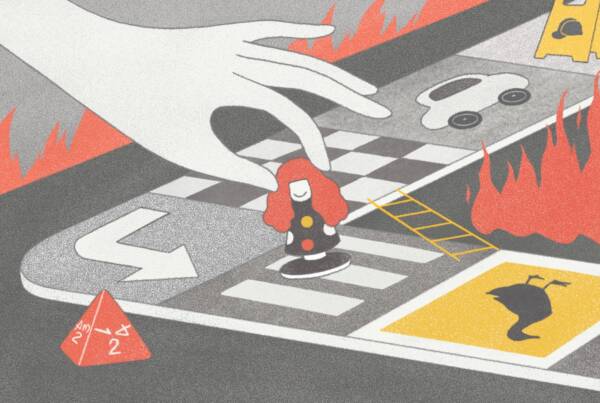Writing by Aya Harbaoui // photograph by Joshua Fuller
TW: discussions of depression and suicide
 The world was shocked after the death by suicide of the famous Italian-Egyptian singer Dalida who – it would later come to light – was suffering with smiling depression.
The world was shocked after the death by suicide of the famous Italian-Egyptian singer Dalida who – it would later come to light – was suffering with smiling depression.
So what is smiling depression?
Smiling depression can sometimes be known as atypical depression, and although it is not recognized in the Diagnostic and Statistical Manual of Mental Disorders (DSM), the evidence has classified it as atypical depression, and the World Health Organization has indicated that its symptoms are similar to atypical depression.
Causes of Smiling Depression
- Big life changes: loss of a loved one, separation, job loss etc
- Social media: studies have shown that social media may trigger depression.
- Seeking perfection and expectations: the unrealistic expectations that we put on ourselves and also the outside expectations from family, friends and colleagues can trigger smiling depression. Whether you have unrealistic expectations for yourself or expectations from others, you may be more likely to hide your feelings if they don’t seem to serve those expectations. For example, someone who is a perfectionist might be more at risk, due to the impossibly high standards they hold themselves to.
- Societal stigma around negative feelings. Many cultures around the world aren’t comfortable talking about mental health which can mean a hidden epidemic of depression. This can be especially true for men who, in most cultures aren’t taught open up about their mental health in the same way women are.
Symptoms of Smiling Depression:
Healthline describes the symptoms as follows:
- changes in appetite, weight, and sleeping
- fatigue or lethargy
- feelings of hopelessness, lack of self-esteem, and low self-worth
- loss of interest or pleasure in doing things that were once enjoyed
And these symptoms from the outside:
- an active, high-functioning individual
- someone holding down a steady job, with a family and healthy social life
- a person appearing to be cheerful, optimistic, and generally happy
Typically with depression you experience extremely low energy yet with smiling depression your energy won’t be affected unless you’re alone. And that’s why the risk of suicide may be higher, because from the outside people think you’re okay and you may not get the treatment you need in time.
Diagnosis and Treatments:
According to the healthline website diagnosis for smiling depression can be tricky because of the conflicting symptoms to classic depression. To be diagnosed, you’ll have to visit a medical professional – it’s important to find someone who takes you seriously so if a doctor discounts your feeling, try another one.
Treatment for smiling depression is much the same as treatment for classic depression. Including talk therapy (psychotherapy), medication and lifestyle changes. To learn more about smiling depression treatments, speak to your healthcare profession.
It’s important to remember that depression is different in everyone and there is no one way depression looks. Shining a light on smiling depression can help those suffering but can also act as a reminder to check in with friends and family, even if they may appear okay.
Resources and support:
Lifeline – 13 11 14
Further reading:






